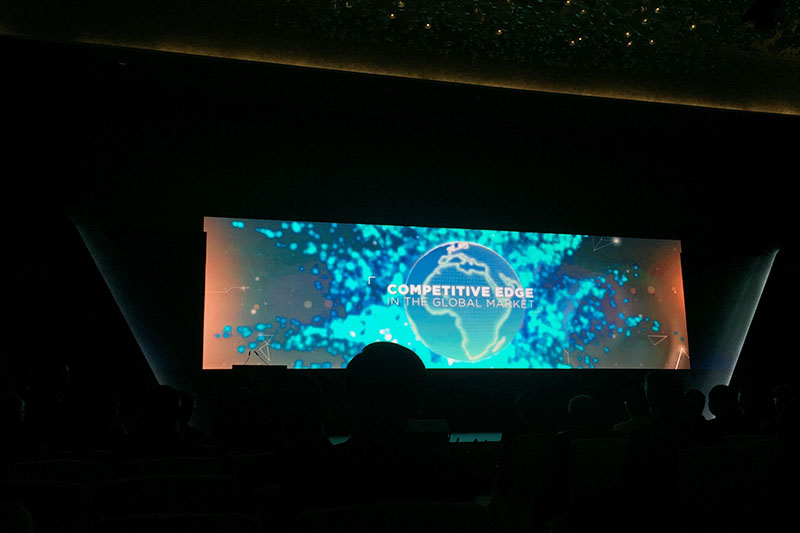
There’s no doubt that next to China, all things Industry 4.0 was peppered in every conversation at IP Week @ SG 2018. Not until recently, intellectual property (IP) rights was a rather blasé affair chock-full with paper work. These days, patent search companies have access to artificial intelligence and blockchain technologies which revolutionise the process.
For example, trademark search has become easier. Instead of laboriously sifting through a database or hiring an attorney to do the groundwork for you, public electronic databases are now commonplace. At the IP Market Place, exhibitors showcased how they used AI to perform patent research and intelligence services.
A Japanese innovation company, for example, provides an advanced cloud-based searching service for registered Japanese trademarks. For trademark applicants, no expertise is needed to judge if the proposed trademark image has already been used. Similarly, trademark examiners can bypass the once arduous task thanks to the functions the AI software provides.
At the booth, a helpful sales rep treated me to a live demonstration using the example of a cartoon panda. With a simple drag and drop function, the screen populates with a list of lookalike trademarks in the order of the degree of similarity. A hybrid search engine function allows examiners and applicants to make comparisons with only a selected part of the image using the crop and rotate/flip features.
If the convenience wasn’t enough already, individuals can use their mobile phones to take a shop of their proposed trademark and conduct a similarity test on the go. Truly a splendid device for SMEs who have neither the time or money.
However, the vendors themselves appeared to have a love-hate relationship with the technologies they themselves use. The issue isn’t potential glitches or shortcomings of the technology. Legal practitioners, accounting professionals and patent search analysts all deal one major problem: getting a good grip on the technology. This means valuating the technology that makes up the product using institutionalised accounting standards, tracing the technology’s origins, or fundamentally codifying the processes and results of products which use machine learning.
The conundrum is a real one.
Although tech-based solutions have been offered, they are still insufficient to match the pace of digital transformation. From speaking to two professionals from patent search companies and informed by the forums, I found out that blockchain technologies to identify infringements were only chipping away at the surface of the problem. The advancements are a source of distress.
The first difficulty was the inability to value the intellectual property of the technology. Unlike machines of the past, it was relatively easy to pinpoint the cost of the materials and talent used to create the product. Accountants relied on a universally agreed standard.
However, technology produced today has an unpredictable value. Ironic as it is, given the use of AI to generate predictable results, the issue is that the value of the technology appreciates under the certain conditions. For example, machine learning software improves its performance over time. The more data the machine is fed, the more predictable and accurate the outcomes are. One legal practitioner emphasised that learning does not equal results. Thus, the product it originally was is cannot be compared to the product it will be become.
A continuation of the first point, AI technology has multiple applications in various industries. However, when applying for a patent, it does not fall under a unique AI category. Surprisingly, some AI technologies are not granted patents. Although the results might be unique, there was no real invention since AI was merely applied. The same legal practitioner believed that the while blockchain might be useful to identity infringement, technologies which use blockchain might encounter an increased number of law suits in the future solely because the infringement is derided. Hence, even if a company filed a complaint, it might not be able to receive the compensation or remediation it sought. A trade secrets protection might be more useful.
Thirdly, the novelty of the machine might not match the hype surrounding it. This boils down to market forces and branding – very irrational human behaviour. Venture capitalists and angel investors pour monies into companies based on market sentiments and optimism. Some brands perform better than others, even if the product offers no significant value-add to the current tech landscape.
The dynamics of Industry 4.0 works out to be every economist’s nightmare. Although it has long been understood that human behaviour could not be attributed a price point, the uprooting of traditional structure severely disturbs legal and business processes.
As long as a clear and defined methodology exists, professionals at the cusp of digital transformation and intellectual property will scratch their heads. About the value of intangible assets, talent, and the vague vanguard of ethics. One thing’s for sure, constantly evolving is the only way forward.
















